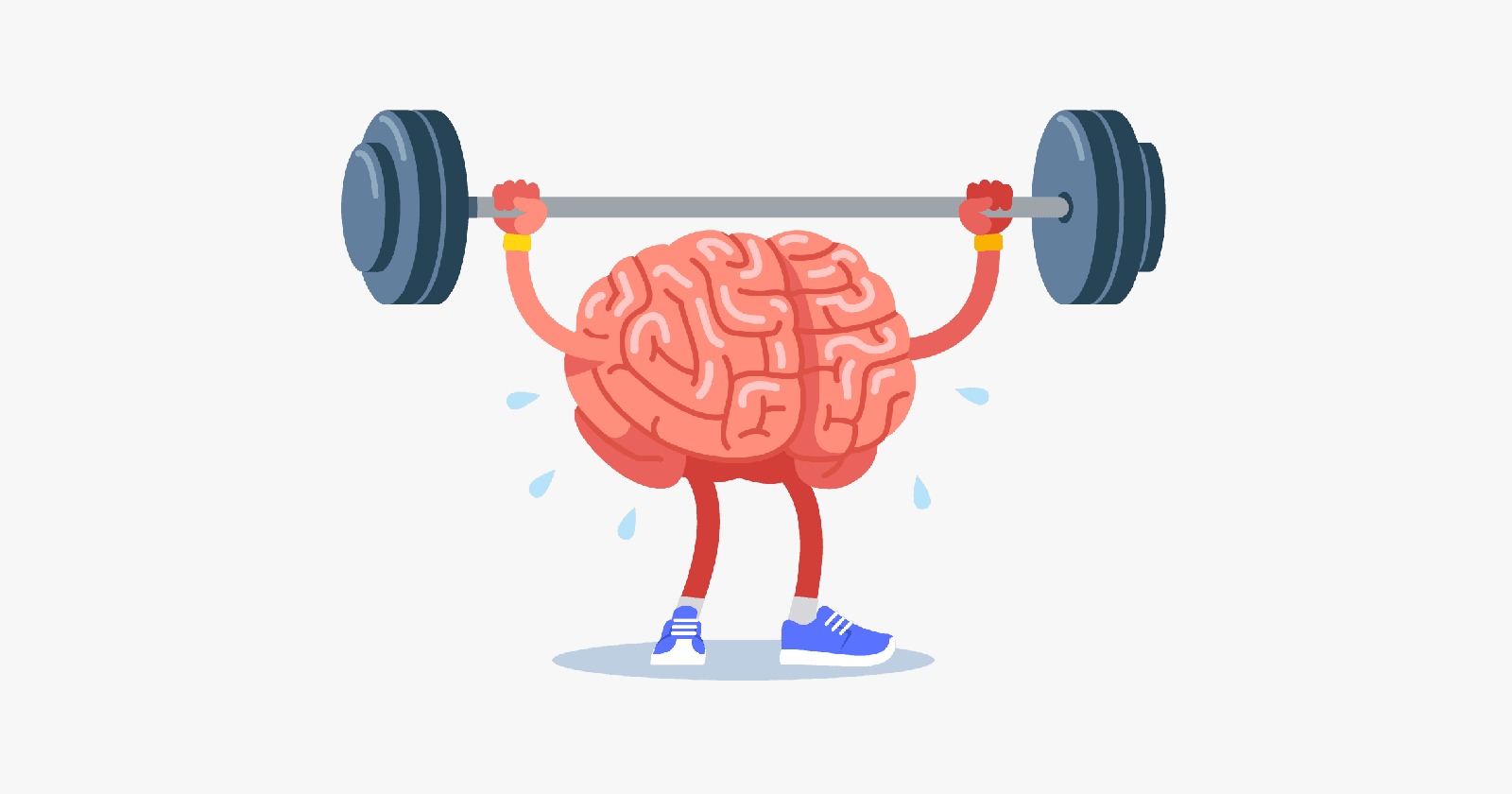
Healthy Habits for a Balanced Lifestyle
Healthy habits form the foundation of a balanced lifestyle by nurturing the body, mind, and spirit. Prioritizing nutritious food, physical activity, restful sleep, stress management, hydration, and positive relationships supports overall well-being. Avoiding harmful substances and mindful screen use further enhance health. Setting achievable goals encourages sustainable change, helping individuals enjoy greater energy, resilience, and happiness.
💪 Fitness Guru
39 min read · 11, Aug 2025

Introduction
In today’s fast-paced world, maintaining balance can feel like an uphill task. Work, social life, health, and personal goals often compete for your attention, leaving you stressed or overwhelmed. But a truly balanced lifestyle isn’t about perfection—it’s about building healthy habits that nurture your mind, body, and soul in harmony.
Healthy habits are small, consistent actions that improve your overall well-being and help you feel grounded and energized every day. They create a foundation that supports physical health, emotional resilience, and mental clarity.
In this article, we’ll explore key healthy habits to incorporate, the science behind why they matter, and practical tips to weave them seamlessly into your daily life. Choosing the right pet breed for your lifestyle is an important decision that requires careful consideration of various factors. Pets can bring immense joy, companionship, and love into your life, but they also come with responsibilities that can vary greatly depending on the type and breed of animal you choose. Matching a pet’s characteristics with your lifestyle will ensure a harmonious relationship and a happy, healthy environment for both you and your furry, feathered, or scaled friend.
First and foremost, it’s essential to honestly assess your daily routine, living space, activity level, and personal preferences before deciding on a pet breed. For instance, if you live in a small apartment, large breeds that require lots of space and exercise may not be suitable. Similarly, if you have a hectic work schedule and limited time at home, high-maintenance pets that demand constant attention might become stressed or develop behavioral issues. Understanding your own lifestyle limitations helps narrow down the options and avoid frustration or pet abandonment later.
Activity level is a crucial factor when selecting a pet breed. Some pets, especially certain dog breeds, need regular vigorous exercise to stay healthy and mentally stimulated. Breeds like Border Collies, Australian Shepherds, or Labrador Retrievers thrive on daily runs, playtime, and mental challenges. If you are an active individual who enjoys outdoor activities such as hiking, jogging, or playing fetch, these breeds could be a perfect fit. On the other hand, if you prefer a more laid-back lifestyle or have limited mobility, breeds known for being calm and low-energy, such as Bulldogs or Basset Hounds, may suit you better. Cats generally require less exercise and are more independent, making them ideal for people with busier schedules or smaller homes.
Another important consideration is the amount of time and resources you can dedicate to grooming and healthcare. Some breeds have specific grooming needs that can be time-consuming and costly. Long-haired dogs like Shih Tzus, Poodles, or Afghan Hounds require regular brushing, trimming, and sometimes professional grooming. Shedding is another factor; breeds like Golden Retrievers or Siberian Huskies shed heavily and need frequent cleaning around the house. If you want a pet that requires minimal grooming, consider short-haired breeds such as Beagles or Boxers, or even reptiles or fish that have entirely different care routines. Keep in mind that regular veterinary visits, vaccinations, dental care, and a proper diet are essential for all pets, regardless of breed, so budget and time commitments should reflect that.
Temperament and personality also play a major role in breed selection. Every breed has a general set of behavioral tendencies, though individual pets may vary. If you have children, for example, you might want a breed known for being gentle, patient, and friendly, like Golden Retrievers or Cavalier King Charles Spaniels. Families with young kids should avoid breeds that tend to be more territorial, protective, or high-strung, such as some guarding breeds or very energetic dogs that might unintentionally knock over a toddler. For people who live alone or seek emotional support, breeds that are affectionate and sociable can provide great companionship and reduce feelings of loneliness. Cats, too, have varied personalities—from outgoing and playful to shy and independent—so choosing the right breed or mix for your household dynamic is important.
Your living environment can also dictate the best pet breed for you. Urban dwellers with limited outdoor access might prefer smaller pets or those adaptable to indoor living. For example, small dog breeds like French Bulldogs or Dachshunds are popular city pets due to their compact size and relatively moderate exercise needs. Apartment-friendly cats or small animals like rabbits and guinea pigs can also thrive indoors. Conversely, if you live in a house with a big yard or rural area, larger breeds that love to roam and explore, such as German Shepherds or Labradors, may be more appropriate. Consider any housing rules or restrictions too; many apartments or neighborhoods have limits on pet size, number, or breed due to noise or safety concerns.
Allergies are another factor that should never be overlooked. Some people are allergic to pet dander, saliva, or fur, which can cause discomfort or even serious health issues. If you or a family member have allergies but still want a pet, there are hypoallergenic breeds that produce fewer allergens, such as Poodles, Maltese, or certain terrier breeds. Keep in mind that no dog or cat breed is completely allergen-free, but some breeds cause fewer reactions than others. Additionally, other pets like fish, reptiles, or birds might be better alternatives for allergy sufferers since they don’t produce dander.
Budget also influences breed selection. The initial cost of purchasing or adopting a pet can vary widely depending on breed popularity, pedigree, and source. Beyond that, ongoing expenses like food, grooming, healthcare, training, and pet insurance add up over the pet’s lifetime. Larger breeds generally eat more and may have higher medical costs, while smaller pets tend to be less expensive to maintain. Exotic pets may require specialized diets and care that increase costs. It’s important to realistically evaluate your financial ability to provide for the pet’s needs before committing. Being unprepared for these expenses can lead to neglect or surrendering the pet.
Training and socialization requirements should be considered as well. Some breeds are naturally intelligent and eager to please, making training easier and more enjoyable. For example, Border Collies and Poodles are quick learners who respond well to commands and tricks. Others may have more stubborn or independent temperaments, requiring patience and consistent training to manage behaviors. If you are a first-time pet owner or have limited experience with training, choosing a breed with a reputation for being manageable and friendly can reduce stress. Socialization is also key to helping pets become comfortable with other animals, people, and environments. Certain breeds may be more prone to anxiety or aggression if not properly socialized.
Finally, think about your long-term plans. Pets live many years, and their needs can change as they age. Some breeds are prone to specific health issues that may affect their quality of life and require special care. Researching breed-specific health concerns is wise to anticipate potential challenges. Additionally, major life changes like moving, having children, or changes in work schedule can impact your ability to care for a pet. Choosing a breed whose needs align with your foreseeable future will help maintain stability for both you and your pet.
What Does a Balanced Lifestyle Mean?
A balanced lifestyle means giving appropriate attention to all areas of your life without neglecting any one part. It includes:
- Physical health: exercise, nutrition, sleep
- Mental health: stress management, mindfulness
- Social connections: family, friends, community
- Personal growth: learning, hobbies, rest
When these areas work together, you feel more peaceful, productive, and fulfilled.
Why Healthy Habits Matter
Healthy habits impact your body and mind in profound ways:
- Boost Energy & Vitality
- Good habits like quality sleep and regular movement increase your stamina and reduce fatigue.
- Improve Mental Clarity & Mood
- Balanced nutrition, hydration, and mindfulness lower stress hormones and promote happiness.
- Strengthen Immunity
- Consistent self-care helps your body fight illness more effectively.
- Build Resilience
- Habits like journaling or deep breathing enhance your ability to handle challenges calmly.
- Promote Longevity
- Healthy routines reduce risk factors for chronic diseases like diabetes, heart disease, and depression.
Core Healthy Habits to Build
1. Regular Physical Activity
Exercise isn’t just about fitness—it improves mood, sleep, and cognitive function. Aim for at least 30 minutes a day of moderate activity like walking, yoga, or cycling. Mix cardio, strength, and flexibility for all-round benefits.
2. Balanced, Nourishing Diet
Eat a variety of whole foods rich in nutrients. Include fruits, vegetables, whole grains, lean proteins, and healthy fats. Avoid processed foods, excess sugar, and fried items. Hydrate well—8 to 10 glasses of water daily.
3. Consistent Sleep Schedule
Prioritize 7-9 hours of quality sleep each night. Go to bed and wake up at the same time daily. Create a calming bedtime routine—avoid screens before sleeping, dim lights, and relax your mind.
4. Mindfulness & Stress Management
Practice meditation, deep breathing, or journaling to stay present and manage anxiety. Even 5 minutes daily can reset your nervous system and boost emotional balance.
5. Meaningful Social Connections
Spend time with loved ones and nurture friendships. Social support reduces loneliness and improves mental health.
6. Time Management & Boundaries
Plan your day with realistic goals. Learn to say no to commitments that drain you. Balance work and rest to avoid burnout.
7. Regular Self-Reflection & Growth
Take time weekly to reflect on your feelings, habits, and goals. Read, learn new skills, or explore hobbies that inspire you.
Daily Routine for a Balanced Lifestyle
Morning
- Wake up with gratitude or positive intention
- Drink a glass of water to hydrate
- Do 10-15 minutes of gentle stretching or meditation
- Eat a nutritious breakfast with proteins and fiber
Afternoon
- Take short movement breaks every hour (walk/stretch)
- Eat a balanced lunch rich in veggies and lean protein
- Practice mindful breathing if feeling stressed
Evening
- Finish work on time and switch off devices
- Engage in light activity like a walk or yoga
- Eat a light, healthy dinner avoiding heavy or spicy food
- Journal or reflect on the day before bed
Weekly Habits for Lasting Balance
- Schedule at least one social activity or quality time with family
- Dedicate 30-60 minutes to a hobby or learning something new
- Prepare healthy meals in advance to reduce weekday stress
- Do a digital detox day or evening to rest your mind
- Review your goals and adjust plans as needed
- Practice a longer mindfulness session or attend a yoga class
Common Challenges & How to Overcome Them
1. Lack of Time
Break habits into small chunks—5 minutes of meditation or a quick walk counts. Prioritize tasks and avoid multitasking.
2. Inconsistent Motivation
Track progress with a journal or app. Celebrate small wins and remind yourself why you started.
3. Overwhelm & Burnout
Learn to say no and set clear boundaries. Schedule downtime as non-negotiable.
4. Emotional Eating or Poor Sleep
Identify triggers and use healthier coping strategies like deep breathing or talking to a friend.
Myths About Healthy Habits: Busted!
“I need to overhaul my whole life at once.”
→ False! Tiny changes add up over time; consistency beats intensity.
“Healthy food is expensive and boring.”
→ Not true. Simple, seasonal produce and home cooking can be affordable and tasty.
“I don’t have time to exercise.”
→ Even 10 minutes daily improves mood and energy.
“Rest is lazy.”
→ Rest is essential for growth and productivity, not laziness.
“Mindfulness means emptying my mind.”
→ Mindfulness is about awareness, not stopping thoughts.
Sample Balanced Day Plan
Morning
- Hydrate and stretch
- Balanced breakfast: oats, nuts, and fruit
- 5-minute meditation
Midday
- Walk or light workout
- Lunch: quinoa salad with veggies and grilled chicken
- Short mindful breathing session
Evening
- Light dinner: sautéed veggies and tofu
- Connect with family or read a book
- Prepare for restful sleep: dim lights, no screens 1 hour before bed
Conclusion
Creating a balanced lifestyle doesn’t mean drastic sacrifices or rigid routines. It’s about nurturing your whole self with simple, healthy habits that sustain your energy, mood, and well-being daily.
By focusing on regular movement, nourishing food, mindful relaxation, and meaningful connections, you build resilience against stress and enjoy life more fully.
Start with one habit today—whether it’s drinking more water, taking a short walk, or pausing for mindful breathing. These small steps, taken consistently, lead to a life of harmony and vitality.
Remember, balance is a journey, not a destination. Be patient, compassionate, and curious with yourself as you grow.
Your healthiest, happiest self is waiting for you—one good habit at a time.
Q&A Section
Q1:- What are healthy habits for maintaining a balanced lifestyle?
Ans :- Healthy habits include a nutritious diet, regular exercise, adequate sleep, stress management, and staying hydrated to support physical, mental, and emotional well-being.
Q2:- How important is a balanced diet for overall health?
Ans :- A balanced diet provides essential nutrients, vitamins, and minerals that fuel the body, boost immunity, improve energy levels, and reduce the risk of chronic diseases.
Q3:- Why is regular physical activity vital for a balanced lifestyle?
Ans :- Exercise strengthens the heart, muscles, and bones, helps maintain a healthy weight, improves mood, and reduces the risk of many health conditions like diabetes and depression.
Q4:- How does quality sleep impact daily functioning and health?
Ans :- Good sleep restores energy, supports brain function, regulates hormones, and strengthens the immune system, contributing to better focus, mood, and physical health.
Q5:- What role does stress management play in a balanced lifestyle?
Ans :- Managing stress through relaxation techniques, hobbies, and mindfulness reduces harmful effects on the body, prevents burnout, and enhances emotional resilience.
Q6:- How can hydration affect health and energy levels?
Ans :- Drinking enough water aids digestion, regulates body temperature, supports cognitive function, and keeps skin healthy, preventing fatigue and dehydration.
Q7:- Why is maintaining social connections important for well-being?
Ans :- Healthy relationships provide emotional support, reduce feelings of loneliness, boost mental health, and encourage positive lifestyle habits.
Q8:- How does limiting screen time contribute to a balanced lifestyle?
Ans :- Reducing screen time helps prevent eye strain, improves sleep quality, encourages physical activity, and fosters better social interactions.
Q9:- What is the impact of avoiding harmful substances like tobacco and excessive alcohol?
Ans :- Avoiding these substances lowers risks of addiction, cancer, liver disease, and heart problems, supporting long-term health and vitality.
Q10:- How can setting realistic goals support healthy lifestyle changes?
Ans :- Realistic goals motivate consistent progress, prevent frustration, and build sustainable habits that lead to lasting improvements in health and happiness.
Similar Articles
Find more relatable content in similar Articles

How to Build a Skincare Routine Based on Your Skin Type (Oil..
A personalized skincare routi.. Read More

Fitness for the Brain – How Workouts Rewire Your Mind...
“Discover how physical exercis.. Read More

Epigenetics and Exercise – How Your Workout Affects Your Chi..
“Exploring how regular physica.. Read More

The Perfect Daily Skincare Routine: Morning to Night Essenti..
A perfect daily skincare rout.. Read More
© 2024 Copyrights by rFitness. All Rights Reserved.